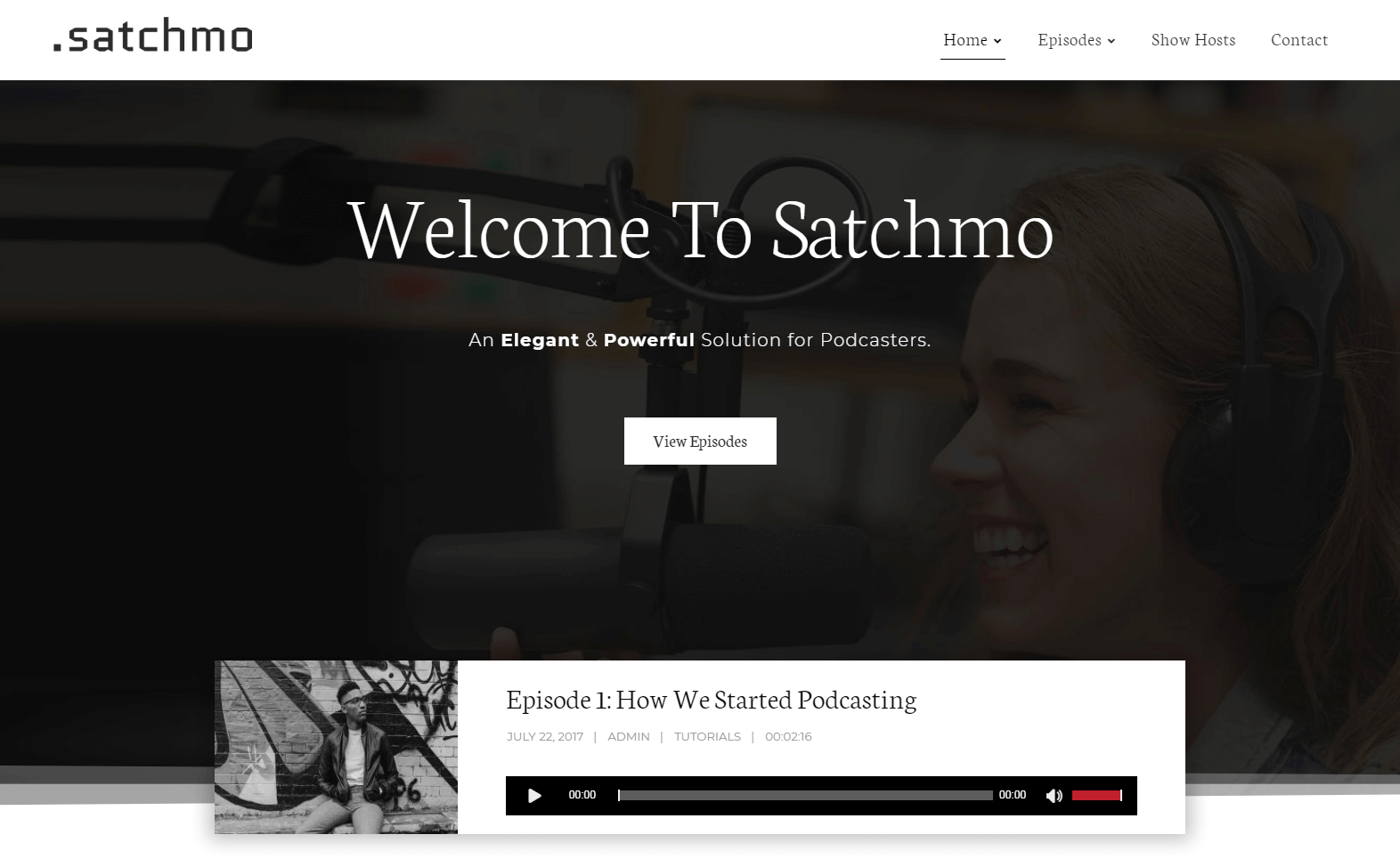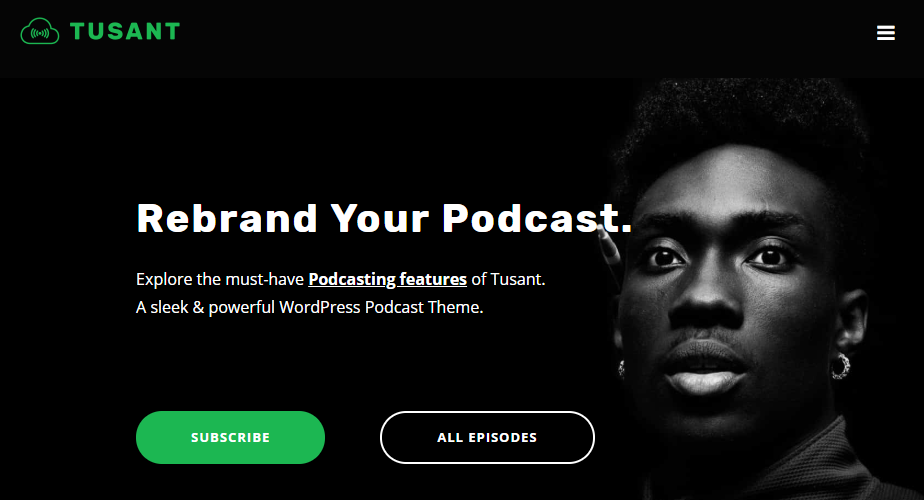6+ Reasons Your Podcast Needs a Website

A lot of podcasters start their podcast as a hobby, or to discuss some of their own hobbies or just other popular topics. There are really thousands of podcast categories out there, and for many podcasters, this hobby slowly becomes a large part of their lives as the podcast grows as well as their audience.
Running a podcast as a hobby is one thing, but if you want to get serious about your podcast, and wonder how to take your podcast to the next level, and perhaps even make money from podcasting, it requires more work and attention to details.
The biggest mistake a podcaster can do is to leave his “brand” to the forces of the podcasting platforms. We all know that the majority of listeners come from Apple Podcasts, Google Podcasts, Spotify, and the likes, but if you don’t take control of your brand, you could have difficulties making your podcast sustainable for the long run.
Owning your own brand (i.e. – your own website, domain, social profiles and so on) means you essentially have your own “business”, even if you don’t see your podcast as a business or never want it to be one.

Example of a well-designed podcast website – Brand awareness (color scheme, logo, custom text) Engagement (subscribe) etc.
7 Reasons Your Podcast Needs a Website
In previous articles, we’ve covered How to Set Up a Podcast Website, but we didn’t explore the reasons why a podcast website is necessary. A website for your podcast is extremely important, and in this article, we’ll cover the “Why” and deep dive into the different benefits of owning your own brand for a podcast.
1. A website is another platform where visitors can listen to your show
As said, it’s true that most listeners of your podcast are probably listening through their favorite podcast platforms like Apple Podcasts or Google Podcasts, but you can still reach a large amount of potential listeners through your own website that is accessible to everybody at any time of the day.
It’s also easier to share a website’s URL in comparison to just giving the name of the podcast. Your listeners could also listen directly from the website, as this might be more comfortable for some users.
2. A website can offer increased engagement with your existing listeners
You probably already have several regular listeners, and those listeners probably regularly check the podcast show notes on Apple Podcasts or Google Podcasts, but it’s nothing in comparison to what you can offer through your own website. You can share written text, images and visual content, blog posts, links, videos, and of course add the show notes directly in the website.
This is a game-changer as you could offer much more content and ways for your audience to receive more from each podcast episodes and get more engaged. A website for your podcast also means your listeners or visitors can contact you directly (without memorizing an email address) via your website’s contact page, or read more about the show hosts – something that is so easy if your podcast only appears on the podcasting platforms.
3. A website provides many options for monetization
Not all podcasts are making ad revenue. As your audience grows, and you accumulate a larger number of regular listeners, it could be time for you to think about making money from your podcast. Podcasts require a lot of time, effort, equipment and other expenses, so it’s a good idea to think about getting your podcast to pay a little of this back.
When you have a podcast that is only visible on the podcast platforms or social networks, it may be hard to achieve any control over that, as your main source would be ads inserted in the podcast itself, and perhaps a Patreon campaign. With that being said, a podcast website can make a large difference. With your own website, you can make money from your podcast in more than a couple of ways:
Making money from your podcast
- Set up an eCommerce store and sell your own products/swag – You can easily set up an online store and offer products, merchandise, custom swag, and other physical goods. On top of that, it’s also easy to offer digital products such as books, additional media (audio/video/images), software or any other item you feel your podcast audience would appreciate.
- Create a restricted or “Premium” section on your website – Let’s say you’re offering a bi-weekly podcast. You can use your free time to record premium content, in those off-weeks, and sell access to it through your website. This doesn’t mean just audio – you can have articles, courses, forums, or other sections put behind a membership/paywall.
- If you run a podcast for your business, it typically means you could promote your own products throughout your podcast and if your podcast website and your business website are connected, it’s another way of funneling potential customers for your business.
- Sell sponsored sections, sponsored posts and affiliate links – You may not want to display random ads all over your website, but you can have a couple of handpicked sponsors for the entire website or just to a specific section. Also, you can have sponsored posts on your blog paid by external companies/people or link to other websites and services with your own affiliate links.
- Accept donations via your podcast website – This point speaks for itself. It’s easy to set up a donation box on your website and collect support from your listeners.
4. A website can bring even more listeners
Once you have a podcast website with content (text, audio and more) regularly added to it, the search engines would start to index and rank it online. Organic traffic can bring a large amount of visitors to your website and some could end up as regular listeners. It’s also easier to share on social networks or newsletters, and lastly, people could listen right there on their devices without opening it in an app or on their phone. A podcast website essentially means you can grow your audience to larger numbers in various ways, and this point makes even more sense if you have well-written show notes with content people are likely to search online.
5. A website offers much more control
Once you have your own podcast website, you control your own data and brand. When you list your podcast on podcast platforms, social media, and so on, you do not control all aspects of your brand. A website offers you much more control and flexibility. You can do whatever you want with it, without being limited to the structure or guidelines of the podcast platforms. Additionally, the fact of being able to grow your brand and make a real business out of it couldn’t be ignored.
6. A website can store all of your content in one place
Some podcast platforms may limit the number of episodes you release under one podcast. In addition to that, you may record more than one podcast “show” or “series”, meaning that it might be a bit of a problem to make the connection. If you run a podcast network, or create multiple podcasts – a website would be a great solution to display your content in one place and control how it is being displayed.
7. A website helps in visibility and exposure
A website will help you promote your podcast in search engines like Google, Bing, or Yahoo.
With Google having a 92.5% market share you can work on SEO (here’s a great guide for SEO, also known as search engine optimization) to improve your site visibility and generate traffic for free.
By creating a dedicated website for your podcast, and adding all episodes, show notes, and additional content, your site could really attract customers who just stumble upon it via organic search, and eventually become avid listeners of your podcast.
Conclusion
To conclude, a website is very important for any brand, and you should now see why it’s so important for podcasts and podcasters. You can take your podcast into the next level when you create a podcast for it, and there are endless opportunities to monetize your podcast through your website, grow your community, offer more content to your listeners and more.
Here at SecondLineThemes, we specialize in Podcast WordPress themes for podcasters. You can check our popular podcast website templates here.
